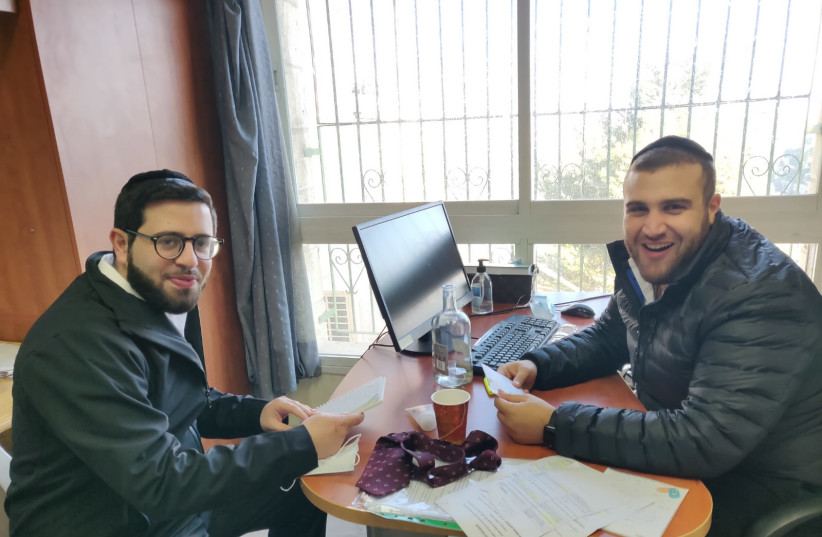After two years of intensive training at the PUAH Institute for Medicine, Halacha and Women’s Health, two Mexican-born rabbis returned to Mexico to open a branch of the institute there. The PUAH Mexico branch will deal with issues such as fertility and the connection between medicine and Halacha. They are also expected to establish a call center in Spanish that will cater to about 350,000 Spanish-speaking Jews.
David Jabbaz and Daniel Credi were qualified as rabbis in Mexico and completed a two-year internship at the PUAH Institute in Israel, during which they learned the worlds of medicine, Halacha, fertility, pregnancy, childbirth, genetics, purity of the family and other topics.
They recently completed their official training and returned to Mexico under an official appointment as rabbis of the PUAH Institute. “Rabbis Jabbaz and Credi have begun to answer the hotline for the Spanish-speaking public and have begun advising 50 couples,” PUAH stated.
“In addition, they are currently holding a series of lectures and training sessions for bridal teachers [women who teach a future bride about family purity and sexual relations according to Jewish tradition] in Spanish online,” it added.
There are a few hundred thousand Jews who live in Latin America and Spain who, according to PUAH, don’t have any professional organization they can approach regarding medical issues with a halachic perspective.

“When the relationship with the PUAH Institute was established, we understood that this should be our mission; We decided to leave our comfortable life in Mexico, we brought our families on board, who were immediately hooked on the idea, despite the difficulty involved – and moved to Israel.”
Rabbi Daniel Credi
“The relationship with the PUAH Institute began when two rabbis of the PUAH Institute, Elchanan Lewis and Dov Popper, arrived in Mexico on a mission and a special relationship was formed,” Rabbi Marcos Metta, founder and head of the Torah Va’Daat institute in Mexico said. “The training of the two rabbis in Israel is an important message for all South American Jews.”
Credi added that he and many other rabbinic figures in Latin America “saw a need from the Jews of the continent for assistance in the fields of medicine in the perspective of Halacha,” since there was “no professional answer to this need.” Credi explained that “when the relationship with the PUAH Institute was established, we understood that this should be our mission; We decided to leave our comfortable life in Mexico, we brought our families on board, who were immediately hooked on the idea, despite the difficulty involved – and moved to Israel.”
“We’ve returned to our homes in Mexico after learning and achieving lots of experience that we have gained in the last two years in Israel,” Credi concluded.
According to the institute’s website, PUAH is “devoted to helping the greater Jewish community fulfill their dreams of building a healthy family. Whether individuals are struggling with fertility, women’s health, men’s health, genetics or intimacy, PUAH is here to help.”
PUAH has been operating different branches around the world in recent years such as the US, France, Australia, Ukraine and now Mexico.
PUAH expands medical-halachic access in South America
Jabbaz added to Credi’s remarks that this new journey is “a dream come true for the Jewish communities in South America. These Jews will be able to receive professional medical-halachic assistance for couples and individuals.” Jabbaz added that “Spanish-speaking doctors, who are not Jewish, have already reached out to us and were interested in the issues we deal with, in order to create cooperation in the near future.”
Rabbi Menachem Burstein, head of the PUAH Institute, “this is a great opportunity for us to expand to South America and implement the institute’s goal, which is to assist and help every person in Israel and around the world, for us this is a real lifesaver.”
